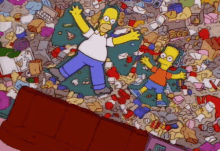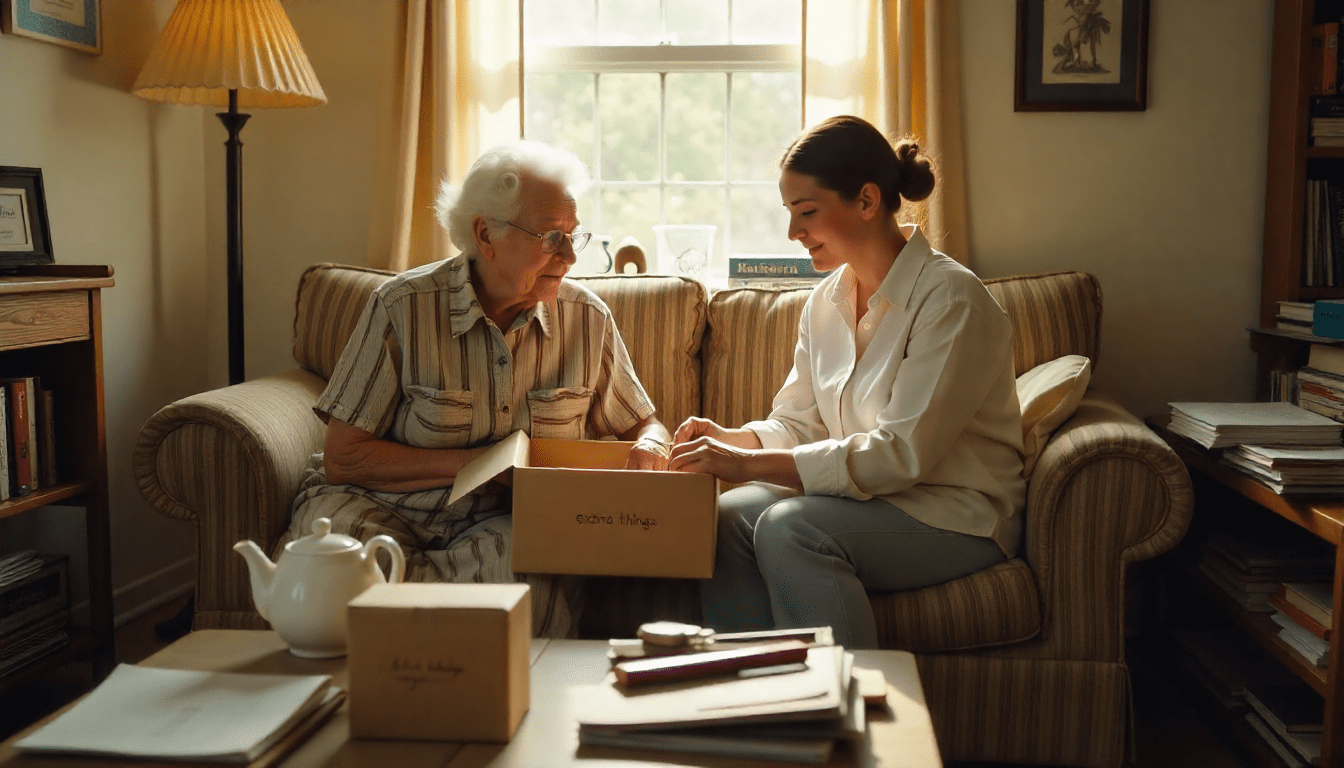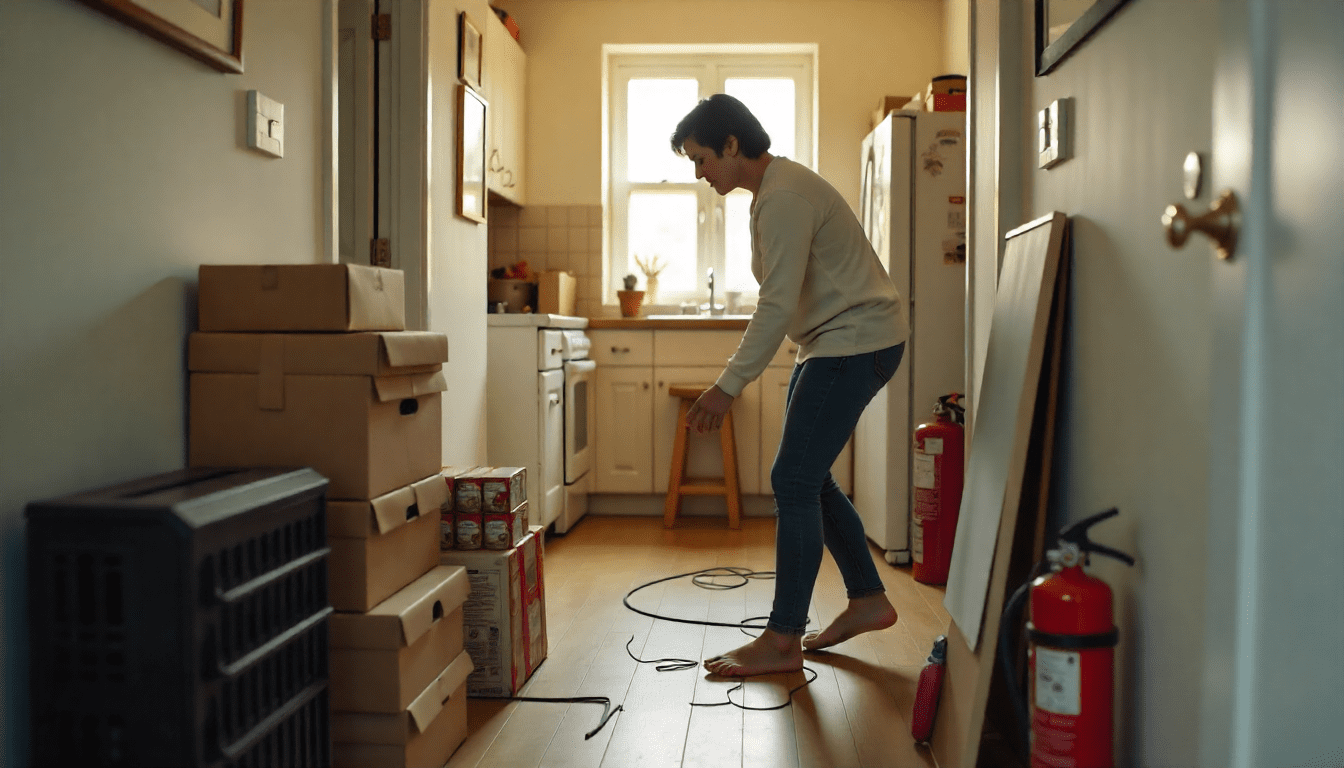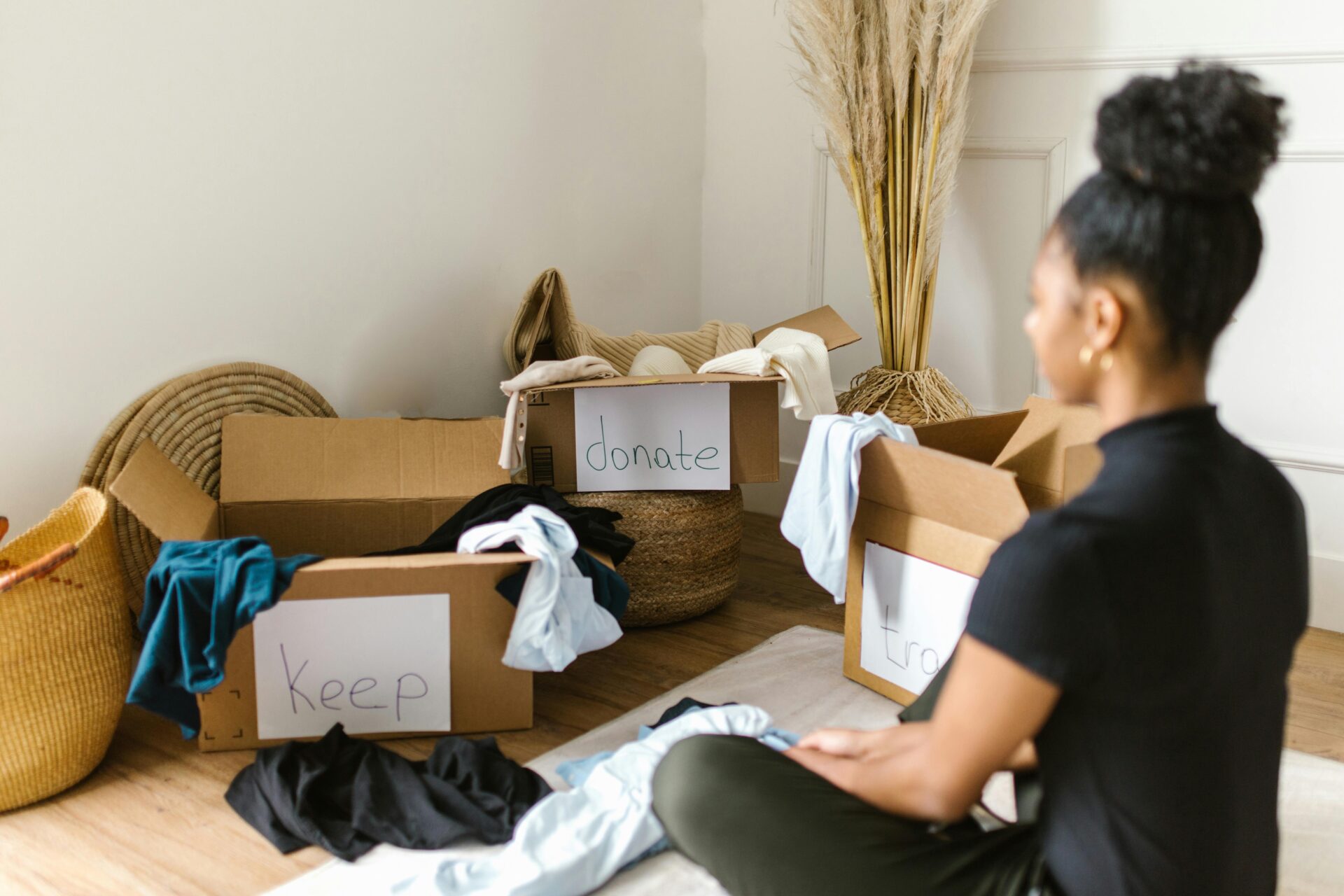You walk into your parents’ house and there it is. The clutter battlefield.
A towering mountain of unopened mail, three broken fans, a suspiciously vintage banana, and every newspaper from the last decade.

💡 First, understand the junk is not “just junk”

Firstly, something that can be hard to appreciate for all of us: your idea of junk is not a universal truth. That tattered holiday card from 1997 might look like rubbish to you, but it might be the only thing your dad has left from a happier time. To them, stuff equals memory, security (and even love).
🧠 Hoarding disorder is a real mental health condition, affecting 2-5% of people (and experts say the number has likely risen since the pandemic).
People with hoarding tendencies feel intense distress when parting with objects. They might know it’s overwhelming, but they just can’t let go.
🕵️♀️ Spot the difference between clutter and hoarding
We all hang on to random stuff (hello, mystery cable drawer). But hoarding goes beyond mess. Here’s what it looks like:
- 🚧 Rooms or hallways are blocked by stuff
- 🚿 It’s hard to cook, bathe, or sleep in the space
- ⚠️ Creates rubbish-filled environments that are often unsafe
- 😰 The person gets very anxious when asked to let go of things
- 🛒 They might shop excessively or refuse to throw out literal rubbish
This isn’t about mere spring cleaning. It’s about safety, health, and relationships.
What not to do

It’s tempting to dive in and “fix” everything right away. But when it comes to clutter, especially someone else’s, force only creates friction.
These gentle shifts in approach can make all the difference.
- ❌ Don’t argue. You’ll lose. The more you push, the more they’ll cling to every cracked mug and dusty box.
✅ Instead, stay calm and listen. Ask how they feel about living with so much stuff. Curiosity opens more doors than criticism ever will. - Don’t use words like “junk” or “rubbish”. These sound harsh and make people feel judged.
✅ Instead, say “extra things”. These terms are gentler and keep the focus on the clutter and not their character. - ❌ Don’t clean behind their back. You might be tempted to “fix” things when they’re not home, but this breaks trust and usually backfires.
✅ Instead, ask for permission. Offer to sit with them while they go through the rubbish. Sometimes, your quiet presence is all they need to make hard decisions. - ❌ Don’t enable. Letting them store boxes in your garage or giving them more stuff “just in case” only feeds the cycle.
✅ Instead, set loving boundaries. Say no to storing their overflow and gently encourage realistic decisions about what stays. - ❌ Don’t expect a total makeover.
✅ Instead, aim for safety, not perfection. Clearing walkways or sorting just one corner is still progress. - ❌ Don’t take over. Saying “You need to throw all this out” puts people on the defensive. Instead, offer support, not control.
✅ A simple “Would it help if I sat with you while you sort?” goes much further.
Make harm reduction the goal

Aim for safety and functionality.
Start with questions like:
- Can we clear a path to the bathroom?
- Can we check the kitchen for expired food?
- Can we open a window and vacuum a little before you come home from the hospital?
- Can we reduce fire risk by clearing the hallway?
You’re not aiming for a Pinterest-worthy minimalist home. You’re aiming for a safe, breathable, and livable home.
Practical Cleanup Tips for a Rubbish-Filled Home

Once you’ve tackled emotional prep, you’ll need a plan for the physical cleanup, too!
For large volumes, consider booking a rubbish removal service or hiring a skip to make hauling easier and safer.
Step 1: Prep your gear
Before touching a single bin bag, gather your essentials:
- 🗑️ Heavy-duty rubbish bags
- 📦 Boxes for donations and recyclables
- 🏷️ Labels or tape
- 😷 Gloves and masks
- 💧 Water and snacks (trust us, you’ll need them)
- 📸 A phone or camera for before-and-after photos (you’ll want proof of your victory)
If you suspect this cleanup will take more than a day or generate a mountain of rubbish, it might be worth booking a rubbish removal service early on! They’ll come straight to your home, collect the rubbish, and take it off your hands! No need to lift the piles yourself.
Step 2: Start with health hazards
Don’t dive straight into the memorabilia. Begin with rubbish that poses health risks, like rotting food, mouldy containers, broken glass, or expired items in the fridge and bathroom.
Step 3: Choose a small, manageable area
Instead of tackling the entire house, pick a contained space, such as:
- A bathroom
- A hallway
- A kitchen corner
This keeps momentum high and overwhelm low.
Step 4: Set up sorting stations 📊
Label five bins or boxes for:
Clear, consistent sorting makes the process faster and avoids decision fatigue.
Step 5: Take breaks and stay hydrated 💧
Decluttering rubbish is emotional too. Set timers, pause often, and sip water. Change your shirt halfway through for a fresh restart (trust us! It helps).
Step 6: Remove rubbish immediately 🚨
Don’t let bags of rubbish sit around waiting for “later”. Take them out right away. If it’s too much to handle alone, there’s no shame in getting help.
💡 Pro tip: If the rubbish piles are too large or hazardous to manage, book a rubbish removal service for fast, no-judgment help! Plus, they’ll lift, load, and haul everything for you! (and spare yourself from the awkward dragging.) You won’t even have to touch that broken couch.
💔 Respect the emotional load (yours and theirs)
Decluttering is also rediscovering grief, control, and identity.
Your parent or loved one might feel like you’re throwing away their life. And you might feel like you’re drowning in someone else’s trauma! Both of you are right.
So, try to give space and be patient.
🧩 When they don’t think there’s a problem
Sometimes, your loved one won’t admit there’s an issue. You can’t force insight, but you can gently encourage change.
Keep in mind:
- Hesitation is normal
- They have a right to choose
- No progress happens until they’re ready
You can share resources like the Clutter Image Rating tool. Ask how they feel when looking at the photos.
Still, don’t expect an instant lightbulb moment.
🆘 When it’s time to call in help
If the home poses a serious risk (like structural damage, infestations, or health hazards), you may need outside help. This could include:
- A therapist who specializes in hoarding disorder
- Social services (especially if the person is elderly or disabled)
- Professional organizers trained in hoarding situations
- A compassionate rubbish removal service and local skip hire
Remember: Always ask your loved one’s permission before bringing in anyone.
💭 Let go of the fantasy of a clean house
We know. You just want them safe, healthy, and able to use a sink. But this is a marathon. Not a montage scene from a home makeover show.
Let progress (not perfection) be the goal!
About us
Junk&Waste is a professional waste booking agent – we partner with local, vetted crews to ensure all waste collections booked via our website are fully licenced, insured and responsible.
Image Credits:





